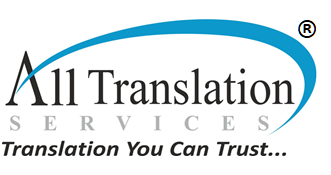Clinical Research Translation - Accuracy & Compliance in Global Healthcare
In today’s global healthcare environment, clinical research translation including PIS and ICF translation services in India is an essential aspect of making medical and scientific information accessible across language barriers.
It ensures that participants, healthcare providers, and regulatory bodies fully understand the clinical research process and outcomes, regardless of language.
This critical component of the pharmaceutical and medical research industries requires both linguistic accuracy and an in-depth understanding of medical terminology, regulatory requirements, and cultural nuances. This article delves into the importance of clinical research translation and highlights key types of documents that often require specialized translation services.
Informed Consent Forms (ICF)
Informed Consent Forms translation are fundamental in clinical trials, as they provide participants with comprehensive information about the study, including its purpose, procedures, potential risks, and benefits. For non-native speakers, ICFs must be translated accurately and clearly to ensure participants can make well-informed decisions regarding their involvement in the research. Mistranslation or vague language can lead to misunderstandings and may even invalidate the consent process. Translators must balance medical accuracy with readability, ensuring that complex medical terminology is conveyed in a way that is accessible to all participants.
Patient Information Sheets (PIS)
Patient Information Sheets translation are used to offer study participants detailed information about their role, the study’s purpose, and what to expect during the research process. PIS documents often supplement Informed Consent Forms and play a critical role in supporting patient understanding and engagement. Translating these documents requires a clear, patient-friendly approach, ensuring that participants comprehend all aspects of the study. Precision is essential, as patients rely on this information to make decisions about their participation.
Summary of Product Characteristics (SmPC)
The Summary of Product Characteristics provides healthcare professionals with essential information about a medicinal product, including its uses, dosages, contraindications, and potential side effects. Accurate translation of the SmPC is crucial for ensuring the safe and effective use of the product in different linguistic regions. Translators must be well-versed in medical terminology and regulatory standards, as these documents are often submitted to health authorities for approval. The slightest error in translating SmPCs can lead to serious medical misunderstandings and regulatory complications.
Instructions for Use (IFU)
Instructions for Use documents are vital for medical devices and pharmaceuticals, providing step-by-step guidance on safe and correct usage. For medical professionals, accurate IFU translations ensure proper product handling, preventing misuse and potential harm to patients. Translating IFUs requires not only linguistic skills but also an understanding of the technical aspects of the product. A translator must ensure clarity and conciseness to make the instructions easy to follow, even for those who may not be familiar with medical terminology.
Scientific Articles
Scientific articles play a key role in advancing medical research and knowledge-sharing within the global healthcare community. For researchers and medical professionals, access to translated scientific articles can facilitate collaboration and innovation. Translating these articles accurately demands a thorough understanding of both the language and the scientific subject matter, as well as the ability to convey complex ideas with clarity. Translators must also adhere to the original article’s tone and style to maintain the authenticity and integrity of the research.
Case Studies
Case studies provide valuable insights into specific clinical scenarios, treatments, or patient outcomes. They are often used for educational purposes and to support clinical decision-making. Translating case studies accurately is essential for sharing these insights with a broader audience, as they contribute to the collective medical knowledge base. Translators must capture the details of the case accurately and ensure that the translation preserves the educational value of the original study, as well as any cultural or ethical considerations.
Label and Packaging Texts
Label and packaging texts contain critical information about a product, such as its contents, dosage, warnings, and usage instructions. These translations must be highly accurate, as they are directly related to patient safety. Translators need to be attentive to both regulatory requirements and linguistic clarity, as any misinterpretation of label information can lead to serious health risks. Additionally, the language must be concise due to space constraints, which can add complexity to the translation process.
Training Documents
Training documents are essential for educating healthcare providers, study personnel, and patients on various aspects of clinical research and product use. Accurate translation of these materials ensures that all parties are well-informed and capable of performing their roles effectively. Translators must ensure that training materials are accessible, culturally appropriate, and easy to understand. This requires not only language skills but also an awareness of the educational needs of the target audience.
Brochures
Brochures are often used to provide patients and healthcare professionals with introductory information about a product, study, or service. They are usually intended to be informative and engaging, requiring a translation that is both accurate and appealing. Translators must capture the intended tone of the brochure while ensuring that the content is clear and accessible to the target audience. This type of translation often involves a degree of creativity, as the goal is to maintain reader interest and communicate essential information effectively.
Conclusion
Translating clinical research documents is a meticulous process that demands not only linguistic expertise but also an in-depth understanding of medical terminology, regulatory standards, and cultural considerations. From Informed Consent Forms to product labels, accurate translation ensures patient safety, regulatory compliance, and the successful global distribution of medical information.
At our clinical research translation company in India, we have been providing expert clinical research translation services for over 20 years. Our team of specialized translators and medical professionals work with some of the most reputable pharmaceutical clients in the industry. With our experience and dedication to quality, we are here to ensure that your clinical research documents are translated accurately and effectively for a global audience.
